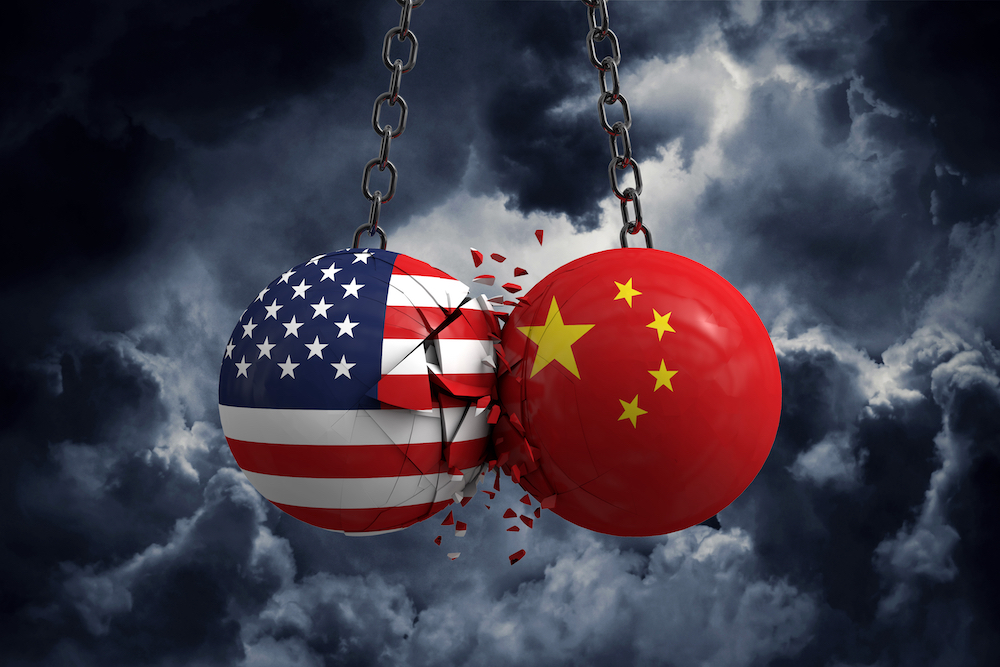
Posted November 14, 2023
By Ray Blanco
Even More China Trade Wars
It seems that if a new technology is worth developing, then it’s worth having a trade war with China over it.
We’re already fighting with the People’s Republic over…
We’re even in a good old fashioned space race with them.
Due to their applications in military and cybersecurity, the consequences are potentially very grave when it comes to China gaining an advantage in artificial intelligence and quantum technology.
Many of the trade restrictions, both by the United States and China, cite national security concerns when limiting the tech they’re allowed to import from the rival nation.
So why is the latest technology caught up in this ongoing trade war the niche industry of robotaxis?
That’s right. Self driving taxis are at the center of America’s latest national defense measures against China.
It’s because the same technology that is used for these robotaxis and many driver-assist features that are in many newer cars, is also used in military technology such as submarines, drones, and weapons with advanced targeting.
Lidar, or Light Detection and Ranging, has become the latest leg of the China/America trade war.
And at the center of it is the Chinese tech company, Hesai Group.
In February of this year Hesai had the biggest IPO on American exchanges since 2021, raising $190 million. Since then they’ve become one of the primary examples of collateral damage of the trade war, with restrictions (and the threat of more) driving their stock price down over 50% since the initial offering.
Anything Can Be A Weapon
The claim that lidar (which is primarily used for mapping cities or having your car park itself) is a dangerous weapon has stirred up a lot of controversy.
US officials claim that lidar should be looked at with the same scrutiny as any other military technology, since it can be used for battlefield mapping, autonomous targeting, and possibly most concerning: spying.
But those claims are contested by those being hurt by the inclusion of lidar as military tech, which the last two presidential administrations have prioritized stifling China’s access to. Hesai Chief Executive David Li said “Hesai lidars don’t - and indeed cannot - pose a national security or privacy threat. The concerns are fictions spread by competitors.”
Li even went as far as to say, “We believe this is xenophobic fearmongering and nothing more”.
The threat to Hesai’s business looms large, with almost 100% of American self-driving car makers sourcing them for their lidar.
Many see the inclusion of lidar in the same discussion as other more obvious military tech as US lawmakers fighting a battle on behalf of the American lidar company Ouster, who has sued Hesai for allegedly stealing their technology.
Ouster chief executive Angus Pacala has claimed “Hesai has built their business on stolen IP”.
It’s often difficult to tell where the military tech throttling ends and the economic hamstringing begins.
This move closely mirrors the ban the Chinese government placed on the use of chips made by the American company Micron in their national infrastructure based on unsupported claims of a “national security risk”.
Clearly both governments are willing to play dumb (I’ll give them the benefit of the doubt that they’re “playing”) in order to help their country’s businesses gain an edge in emerging markets. If the US is willing to press the issue on lidar, there is a lot of market share up for grabs if Hesai is pushed off of our shores.
With that, we’d like to hear your thoughts. Are these governments interfering too much? How far should we push the trade war with China? Let us know your thoughts about this, or anything at feedback@technologyprofits.com.

